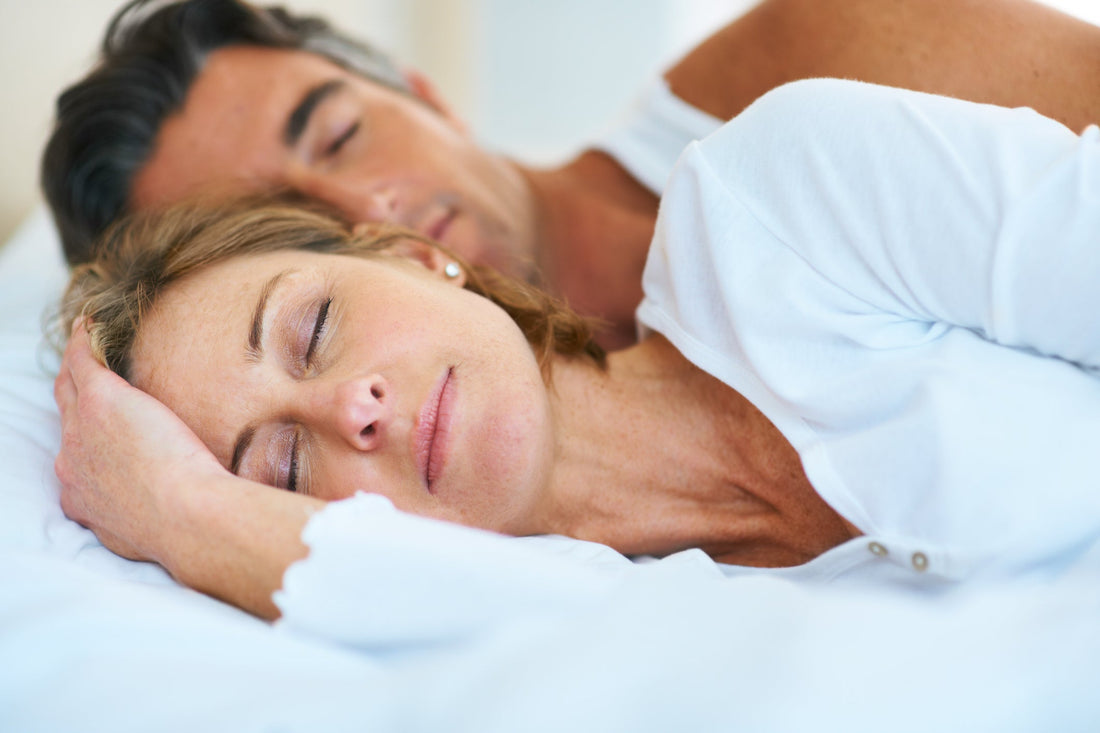
Sleep Deprivation is a Health Risk
Share

Inherently we know that not sleeping is unhealthy, and no one goes out of their way to get as little sleep as possible. We cannot escape the headlines that continually remind us that we need to sleep, so what keeps everyone awake at night? The required amount of sleep considered for good health varies per individual and age, and the effects associated with insufficient sleep differ just as much. What is consistent is what we know about sleep why it is required.
- Sleep positively affects tissues, systems and organs.
- It plays a role in brain function by cleaning the brain's pathways, and without sleep, neurons cannot form new memories or learn.
- During sleep, your blood pressure decreases, providing a much-needed rest to your circulatory system.
- It also uses this time to repair blood vessels.
- Lack of sleep negatively affects your metabolism and can affect the part of the brain that controls hunger, causing an increase in appetite and cravings for sugar.
- Your immune system relies on sleep to keep you healthy, and without adequate amounts, you may find yourself more susceptible to colds and infections or chronic illnesses.
- Sleep is required for energy, both physical and mental, and a lack of it can affect judgement, performance, behaviour and mood.
- Study after study has revealed that people who sleep poorly are at higher risk for several diseases and health problems.

What Keeps You Awake at Night?
We all want a good night's sleep, but for some, getting a good night's sleep consistently is not as simple as you would think.
- Anyone who has ever worked shift work or travels through time zones regularly can attest to the difficulty in regulating their circadian rhythm, which is the internal clock that tells you it's time to sleep.
- Anxiety & stress during the day affect sleep at night. When your anxious, your mind never really has a chance to settle down. Neurons are firing when they should be resting, and your mind starts to become overactive.
- If your body is in constant pain, nerve activity cannot settle down.
- Discomfort from reflux and other gastrointestinal conditions can also leave you tossing and turning at night.
- Hormones can cause havoc to sleep patterns, and no amount of sleeping pills will regulate their activity. Get to the root of the hormonal issues first, whether it be PMS pain or hot flashes from menopause.
How Can you Get Better Sleep?
There are five stages of a healthy sleep cycle. To achieve the healing and rejuvenating affects of sleep, our bodies need to experience each of these cycles throughout the night.
- Stage 1 is when you are drifting off to sleep.
- Stage 2 is light sleep, where heart rate and brain waves start to slow down.
- Stages 3 is characterized by very slow delta waves in the brain.
- Stage 4 is the deepest state of Non-REM (NREM) sleep, and it's when the body undergoes most of its healing.
- Stage 5 is when we dream, called Rapid Eye Movement (REM) sleep.
Supplements can play a key role in helping you to achieve each stage of the sleep cycle. The most recommended supplement for helping you to reset your internal sleep clock is melatonin. Whereas L-Theanine and Schisandra can help to slow down a racing mind and lead the mind into a place of relaxation.
Supplementing with GABA, an amino acid produced naturally in the brain, can significantly reduce the overactivity of neurons in the brain and central nervous system, which provides a broad range of effects on the body and mind, including relaxation, reduced stress and balance mood.
5-HTP (5-Hydroxytryptophan – Griffonia simplicifolia -)- is a compound produced in the body. It is a precursor to the neurotransmitter serotonin and the hormone melatonin. Serotonin is also referred to as the "Happy Hormone." 5HTP can be an effective natural anti-depressant and positively affects sleep, mood, anxiety, appetite, and pain sensation.
There are also some supportive herbs to help activate the "Sleep Cycle," such as Loquat fruit which helps trigger the neurotransmitters GABA and Serotonin, which we now know positively affects mood. Loquat fruit may also produce a sedative effect when taken at night.
Skullcap and Passionflower also stimulate the action of GABA, which will positively affect mood and reduce anxiety. Valerian root is another herb that is researched for its sedative effect on the brain and nervous system, which can help you fall asleep faster and improve sleep quality.
Taking all of these supplements to help achieve the five stages of sleep is not realistic, which is why most natural sleep supplements are presented as combination supplements, providing a range of ingredients. Healthology SLEEP GREAT is a complete formulation that provides a synergistic balance of herbs and supplements. SLEEP-GREAT works by enhancing the body's natural sleep hormone pattern to enter all five healthy sleep stages. It helps you fall asleep quickly, stay asleep and achieve deep, restful sleep.
Resources
https://www.ncbi.nlm.nih.gov/pmc/articles/PMC6366437/https://pubmed.ncbi.nlm.nih.gov/19014069/
https://www.mountsinai.org/health-library/supplement/5-hydroxytryptophan-5-htp
https://pubmed.ncbi.nlm.nih.gov/10869104/
http of childrens://pubmed.ncbi.nlm.nih.gov/9727088/
https://pubmed.ncbi.nlm.nih.gov/10711131/
https://examine.com/supplements/eriobotrya-japonica/
https://www.ncbi.nlm.nih.gov/pmc/articles/PMC5187783/
https://pubmed.ncbi.nlm.nih.gov/14531016/
https://www.ncbi.nlm.nih.gov/pmc/articles/PMC4394901/
https://pubmed.ncbi.nlm.nih.gov/14692724/
https://pubmed.ncbi.nlm.nih.gov/29168225/
https://pubmed.ncbi.nlm.nih.gov/21294203/







